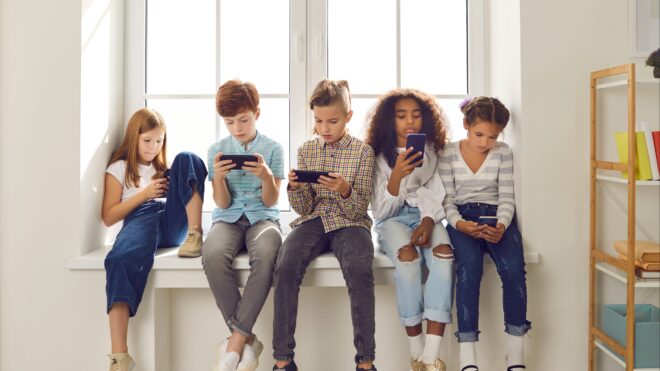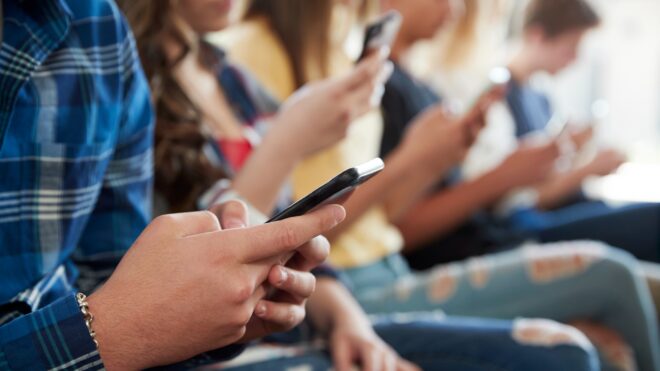
Constant access to the internet is a new landscape for both kids and parents.
It's admittedly overwhelming for parents. The amount of time spent on screens flies in the face of a lot of the rules of restriction that have been so popular in recent years. Parents are also concerned about their child's social and emotional well-being as interacting with peers has been redefined.
Thankfully, Dr. Michael Rich has some answers to help parents cut through the confusion. Dr. Rich is an associate professor of pediatrics at Harvard Medical School and an associate professor of social and behavioral sciences at the Harvard T.H. Chan School of Public Health. He also practices adolescent medicine at Boston Children's Hospital. He is the founder and director of the Center on Media and Child Health (CMCH) and the first evidence-based medical program addressing physical, mental, and social health issues associated with digital technology, the Clinic for Interactive Media and Internet Disorders (CIMAID).
LittleThings spoke with Dr. Rich about some of parents' most pressing concerns about digital well-being. We covered everything you need to know about screen time and cyberbullying to feel confident as kids get back to it.
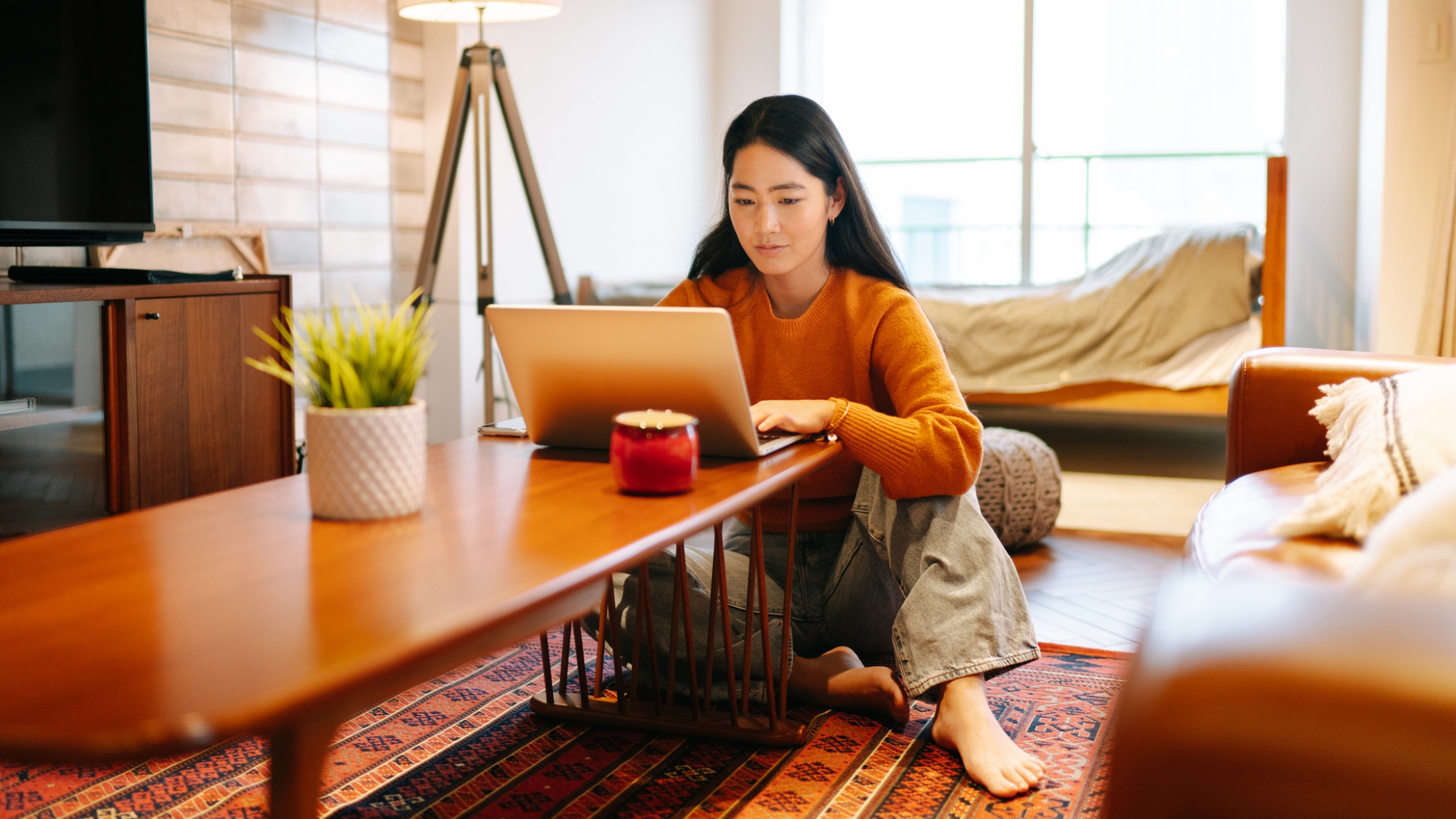
The abrupt switch from in-person to remote learning during the Pandemic was tough on everyone. Dr. Rich says that it wasn't just abrupt but disruptive for children.
"I think the kids and many adults initially saw it as an indefinite snow day," he said.
"I think most people thought it was going to be a couple of weeks and then back to normal, but then it went on and on. The effect on kids was, 'Yay, I have a snow day, I can sleep late and stay up late.' Then a couple of weeks in, schools realized it may go on longer than this.
"Unfortunately, we have not had a tradition of remote learning in this country like some other countries like Canada and Australia have because they have kids in remote communities that have been taught that way for years. We didn't access that."
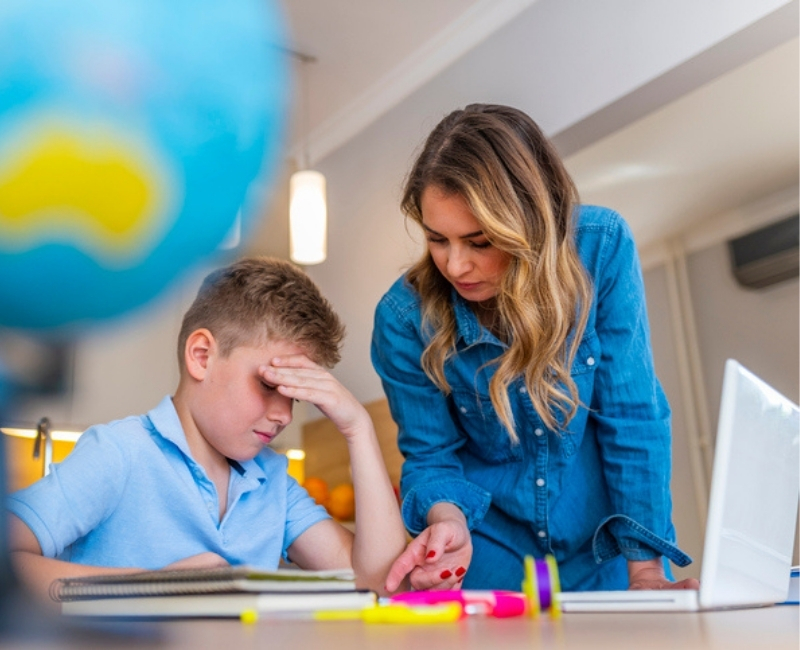
Dr. Rich explains that many schools tried their best to take it easy on kids by easing the parameters of academic performance. Many went to a pass/fail model.
"It undermined even the most motivated, best students," he noted. He said at the point that kids would be recognized at the same level for a baseline level of work as going above and beyond eliminated motivation for a lot of students who would normally excel.
"The cumulative effect on kids between the uncertainty of the risk to themselves and their family but also the uncertainty of how long it would go on, and combining that with what the schools thought they were doing out of kindness … they made the kids feel they were not accountable. The kids feel like they didn't count.
"My patients, and even my own kids, felt unmoored. They didn't have any motivation to do anything."
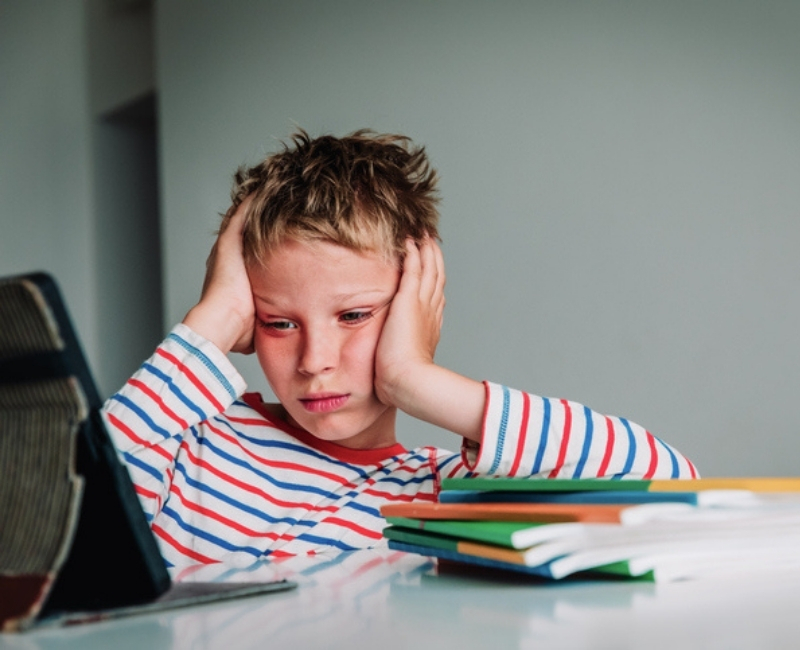
As a professional with a great amount of experience in pediatric mental health, Dr. Rich grew concerned about a second surge of mental health issues such as anxiety, depression, and aggressive behavior, regardless of if the second surge of the virus occurred.
"I think there were a lot of real issues that were not dealt with by the schools or, frankly, by a lot of people. They were all in limbo. Some parents had lost their jobs. Some worked from home while trying to keep the kids on track. There were a lot of issues with how it staggered toward the end of the year, and that continued into the summer, unfortunately.
"I spend a lot of time talking with school systems about what to do. Even though there was talk of school in the fall, most of them didn't start thinking of it seriously until the 1st of August. When it became clear that one of the biggest issues was heating, ventilation, and air conditioning, there was a problem. These are multi-year projects. They're an area that the schools have, over the years because of budget cuts they didn't want to pass on to the children, these improvements and renovations hadn't been made. Many HVAC systems were underperforming as it was, and then they needed to get to super-performance.
"Schools then reach out to parents asking what they want to do: in-person, hybrid, all remote. The parents feel there's no direction and they're feeling unmoored. You guys are the pros and you're asking us what to do."
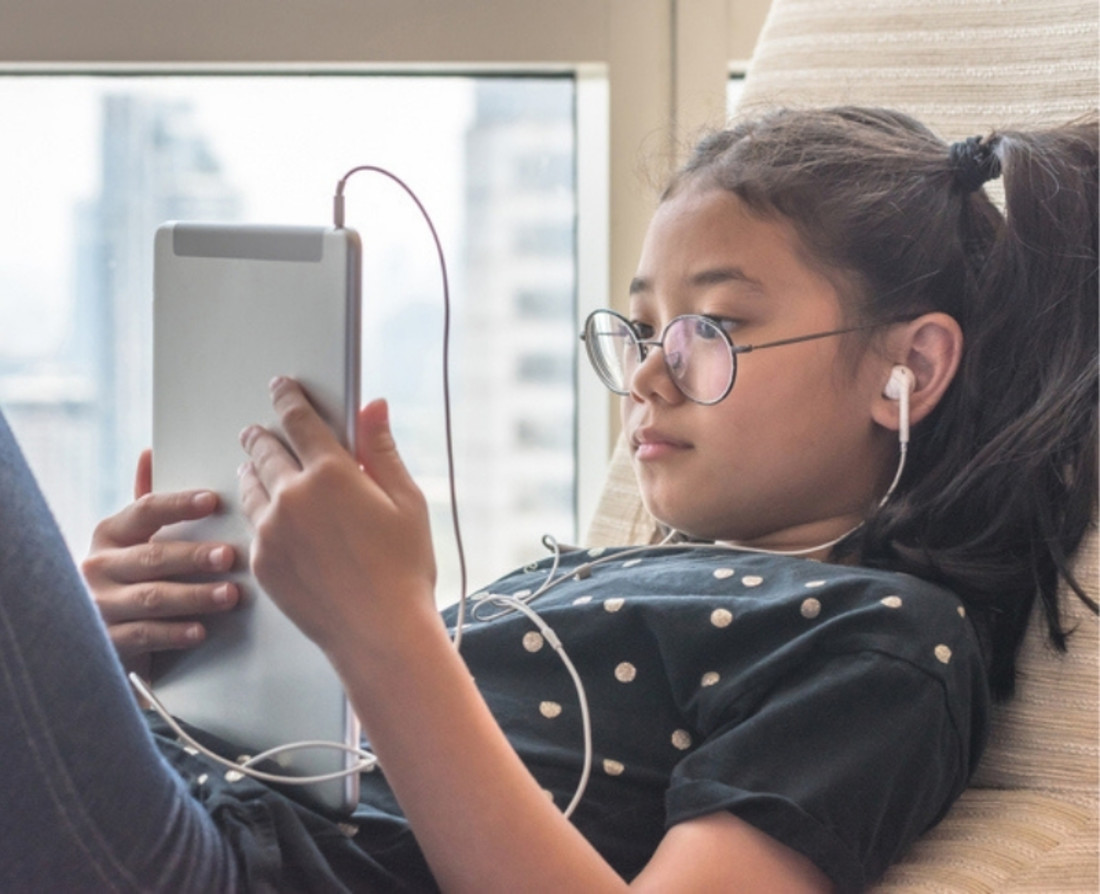
Adding to the disruption with the year ahead is how many students effectively dropped out after last March. Some school districts have cited as much as a 25% loss of students after the switch to remote learning. Those who stuck it out also weren't prepared to focus the way they'd need to.
"Those who logged on who were not used to using these devices as learning devices often were distracted by having another window open or two," Dr. Rich said.
"They'd be gaming and texting during class because they related the online space as essentially a playground. Prior to this, it wasn't a place where they were taking care of any serious business. It was a place for gaming, for social media, chatting with each other, but not really anything serious."
He continued, "The other piece is that kids especially were living with the illusion we can multitask with media when the human brain is capable of only one channel of thinking at a time.
"What you're doing then is rapidly switch tasking but not engaging with anything terribly deeply. They applied that to school, so they didn't really absorb what was going on or think of it in any deep way. They sort of skated over it."
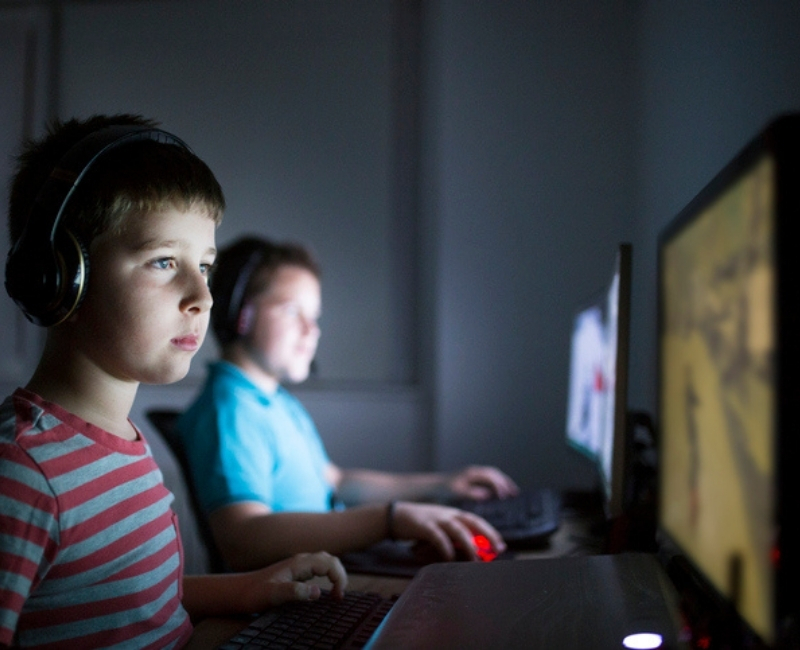
As kids were forced to take their school experience online, their social lives went with it. There was a certain degree of that already happening for kids of a certain age. The internet presents issues that don't necessarily occur with face-to-face interaction.
"One of the problems with the online space for human interactions is that it's not very good at communicating nuance," Dr. Rich said. "A lot of [what] one child might send, thinking they're teasing their friend, could be received as hurtful. Whereas if that same thing had happened in real life, face-to-face, not only would they have probably communicated the fun teasing aspect of it, they would have also seen their friend respond in a hurt way and responded to that.
"In this asynchronous environment and relatively attenuated form of communication where you're only seeing a face, you're only hearing what they say, you're not getting the vibe from them really. There was a rise in misinterpretation that could spin out of control into cyberbullying."
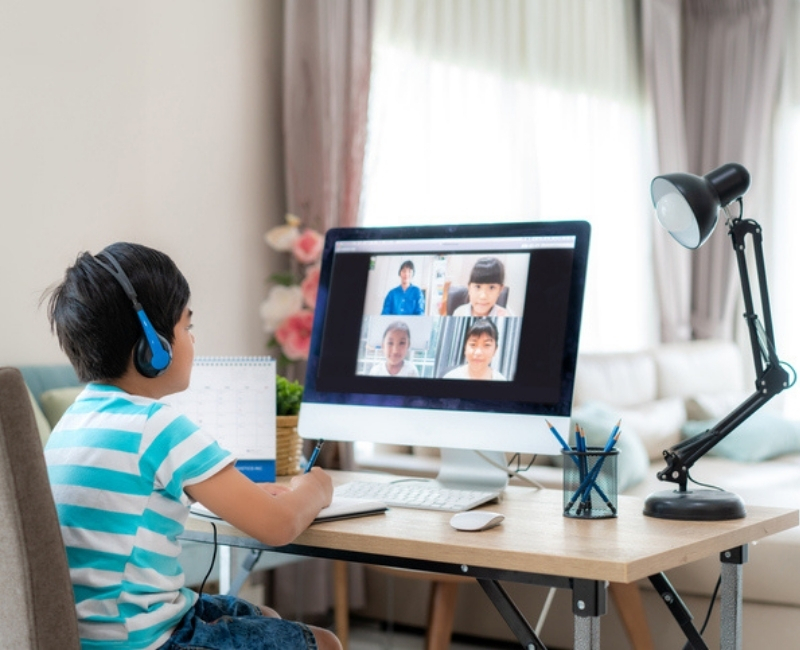
"There's a fairly big debate about what's cyberbullying and what's just drama between kids. I think that's a distraction because it only speaks to intentionality. Did you intend to be mean to this person or was it just drama that they misinterpreted?" Dr. Rich pointed out.
"What it really speaks to is that we need to get more sophisticated and sensitive in our use of these tools to communicate. We need to mature our use of social media in particular so it's more than just a place to show off, brag, market ourselves, and compete, where it can become a place where we can be truly authentic with each other.
"The problem with where we are now is that we're often substituting connectivity with connectedness in the deep and meaningful ways people are connected with each other. That's where many of the problems arise in this cyberspace."
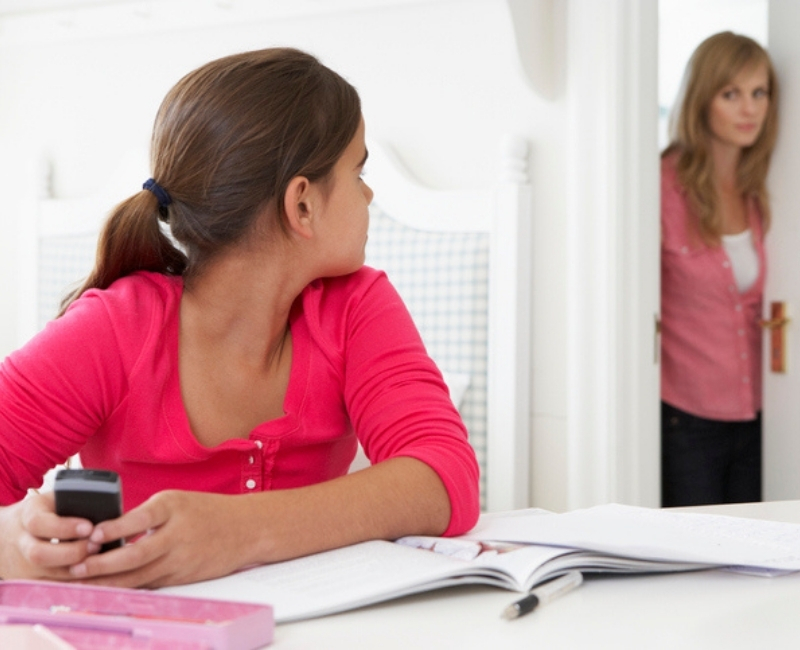
As for cyberbullying and remote learning, Dr. Rich shared that there was likely an increase in cyberbullying because that was the only place they had to interact in.
"In most cases, cyberbullying doesn't exist separate from traditional bullying that would happen at school anyway. In this case, it's limited to the only space where kids can interact," he noted.
"It's really important for parents to be present in their digital world just as we're present in their physical world. We make it our business to make it known what risks our kids are exposed to, like drugs and alcohol at a party. We need to be present in our kids' online lives, not as police but as mentors, those who help their children learn to use this space in ways that are respectful of themselves and each other, that are able to be literate to forms of communication in what they receive and what they send.
"Be present and communicative so when they come across something that's confusing or disturbing or upsetting or overtly attacking, they share it with us rather than hide it away. They hide it away for the simple reason that they're concerned that if they were to tell us this was going on, we'd take away their access. To parents, that access seems like a vector of harm. To them, it's like a shield, a way of knowing what's going on."
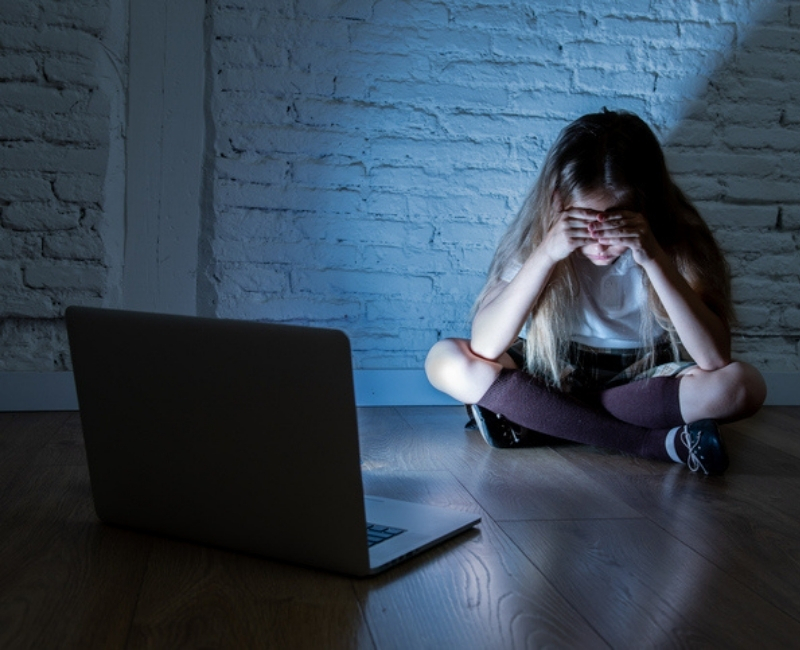
"We talk about FOMO, fear of missing out, in all of us. For kids, what's even more important is the fear of being left out, which I call FOBLO," he explained.
"What they want more than anything else, particularly as they get into their teen years, is to establish themselves as individuals, to move out from under the umbrella of the nuclear family, and to develop their relationships with individuals and groups as an individual. When they're taken offline in any kind of permanent way as opposed to sleep or other breaks, they feel they're not in the mix anymore, and that's really distressing for them."
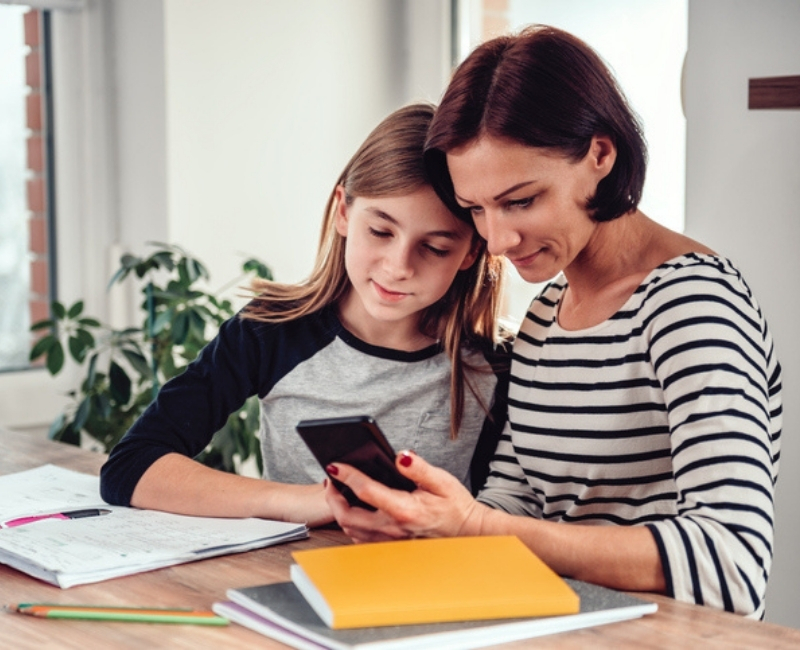
We can help our kids become better digital citizens with a lot of careful and conscious planning. Putting in the time when they're young will help them develop a healthier relationship with the internet at a young age. It will also help ease parents' minds when a plan and ground rules are clear.
"We can teach them that these devices are tools, not toys, and they're power tools. Just like you wouldn't hand an electric saw to a 4-year-old, we shouldn't be handing smartphones or tablets to them without mentoring them in the process, helping them use those tools when they need the tools and when they can use them in ways that are productive and responsible," Dr. Rich explained.
"We need to be side by side with them when we introduce these tools, whether it's a smartphone or a Facebook page. We need to help them learn it, be accessible to them as we help them learn it. Decide with them how these tools should and should not be used, and be quite explicit and consistent in how they should not be used. Decide with them before they engage with these tools what the consequences should be if they step over the boundary if they do the wrong thing.
"What you want them to do is have some ownership of the plan, have it be a plan you work on together as they get older and more capable. The key thing, the critical thing, is to remain accessible to them, not become the cop."
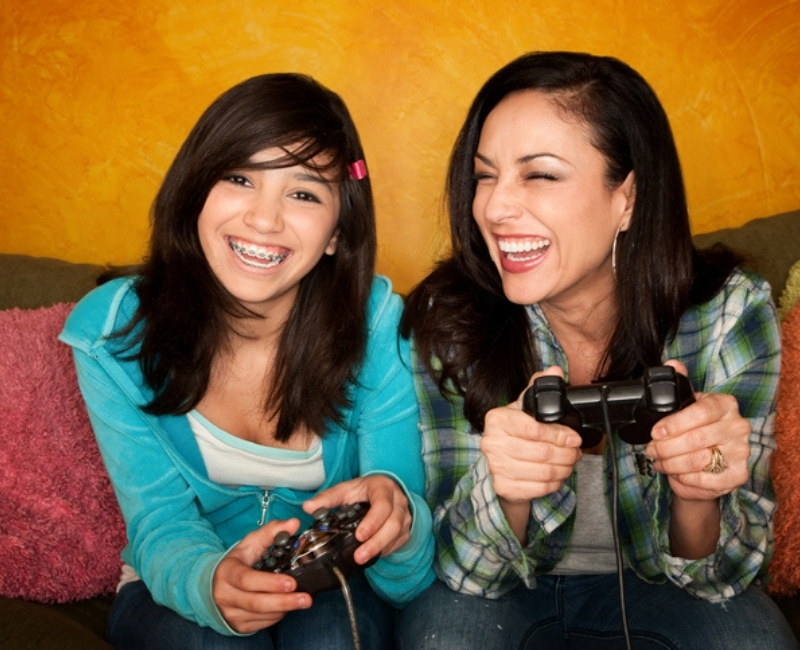
Dr. Rich uses the example of video games with controversial content that parents may not approve of.
"If they have a video game that the parent hates, I recommend that parents, instead of wagging their finger and saying turn it off, sit down and play it with the child. Understand what engages the child and keeps them involved," he explained.
"You're doing a couple of interesting things there. One, instead of making it the rock and roll we love because our parents don't understand it and hate it, we want to help them be competent and confident in this realm. We're also saying, 'I'm willing to be your student. I'm willing to learn from you about this video game.' Then you're in a very different position that's a whole different thing than yelling.
"I think that we need to not only mentor our kids but model responsible, productive use of the online space for them. Too much of the time, you see a parent staring at their phone and being oblivious to their kids' needs. One of the things I ask my patients when their parents are out of the room is, 'What could your parents do better?' What's really interesting about that admittedly subversive question is that three-fourths of the time the first things out of their mouth is, 'Pay more attention to me.' I'm as concerned about the parents' screen time as the kids when it comes to their development."
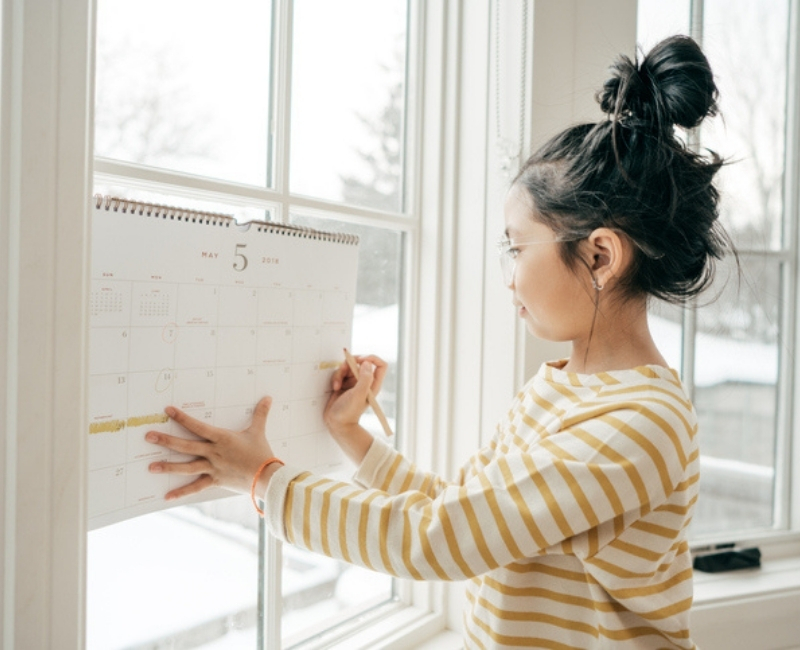
For parents who are relying more on screens and looking at remote learning in the fall, Dr. Rich has ideas about striking a balance that's better for everyone.
"I think it's really important for the whole family to have a regular schedule in which the kids are getting up with enough time to get organized and get breakfast before their first class," he explained. "What that also means is they need to get in bed at a certain time to get a good amount of sleep. Beyond getting things done in a good way, one of the things a schedule does is reduce anxiety. The reality is that it gives them structure, and that structure reduces anxiety because they know what to expect. They might not love math class, but they know when it's happening and when it's over.
"Bring that same level of scheduling to recreational stuff, as well. One of the big problems with recreation online is that there's no clear endpoint to it. That's how these companies make money, by engaging you and keeping you engaged as long as possible. That schedule should not restrict or block times they're recreationally on screen, but they should have clear start and stop times."
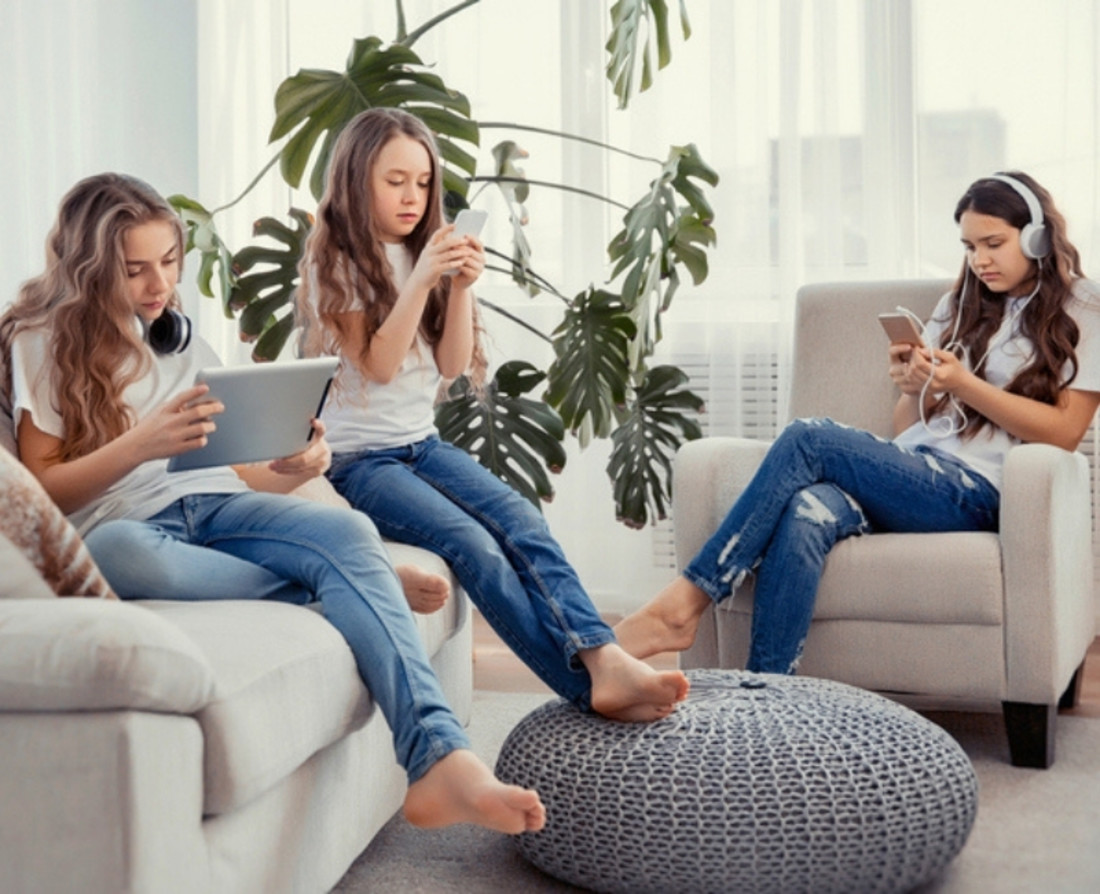
It's also important to designate which spaces are for work and which are for play. Eliminate distractions where you can.
"Have a dedicated place in the house, often next to mom or dad that's working from home, that's their schooling place," Dr. Rich said. "Even if they're using the same device for school and entertainment, they should have a different place to do it. There's a clear, dedicated spot for focusing on work. Have only one window open, no downloading music or shopping. Park their phone elsewhere during school time instead of having that distraction available to them.
"Though I personally hate them, for schooling it's important that the kids use virtual backgrounds. The reason for that is when kids see other kids' home environments, it sets up a situation for bullying around one's socioeconomic status. A virtual background will be a leveler. It serves the same function school uniforms used to serve.
"Other technical things that can help are to turn off the self-view because it's too tempting for them to start mugging for their friends. Have the teacher as the only one on the screen instead of the gallery view when they're talking."
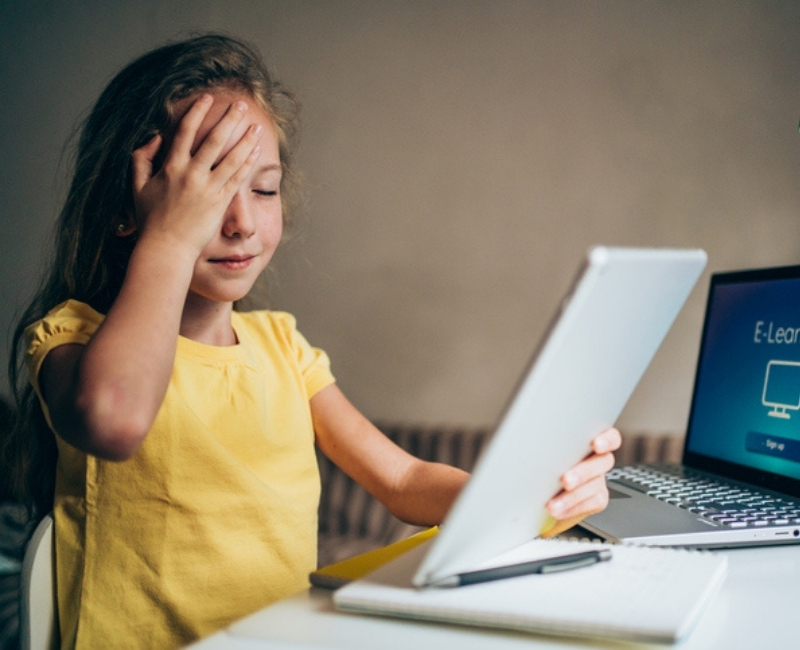
Dr. Rich acknowledges that many kids are still down on the idea of distance learning. There are ways to turn things around and make it a fruitful year.
"They're down on the idea or a couple of reasons," he explained. "They, like the rest of us, suffer from Zoom burnout. It's important that schools structure these classes at lengths that match the child's attention span. It's hard to sit still for an hour straight staring at a screen, much harder than doing so in a classroom. It's important to have discrete periods of time when they're in class and give them time to get up, stretch their legs, get a snack, go outside."
He also shares in the concerns parents have about the acceleration of academics after so much downtime.
"I'm worried that a lot of schools are looking at spring and summer as a slump on steroids. There's going to be a temptation to load up on academics while at the same time the kids' drive is going to be about reestablishing relationships with their peers, and we have to allow room for that. The more we can create situations that allow for social-emotional, like Minecraft being built into projects to work together toward a common end, the more they'll benefit.
"In many ways, what's going on there is the same as when we were playing sandlot baseball, arguing if you were out or why you were in the right field. They aren't playing to be professionals; it's the play of childhood. It's working out who we are and how we should be to each other."
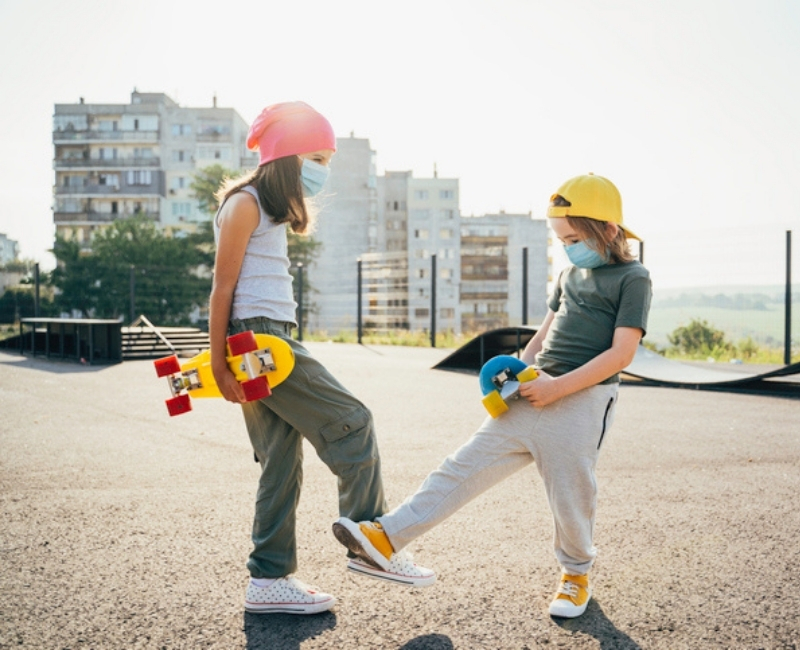
As much worry as parents are saddled with, Dr. Rich considers himself optimistic about how kids will recover from this time.
"As a pediatrician, I'm an eternal optimist. One of the positives of this experience is that for kids, prior to this, the online space was a playground. It was a place for games and social media. Now, it's a place to get things done. It's not just classes; it's communicating and interacting with friends."
"One of the advantages of that is that not only are they seeing that as a tool, but that burnout works in our favor. After a day of online classes, they're less likely to say, 'What I really want to do is play Fortnite for four hours.' They want to get up and get away from it, which works to their benefit.
"The downside is the concerns that kids will veg out and become the proverbial couch potato. That's the place where parents can create useful rules around it. No recreational screen time won't work. Then screen time becomes the forbidden fruit, something to hack around, something to get anyway because it's against the rules.
"Instead, we should really work with our kids to be 'planful' about their day. Let them think about when they're going to do it in the day, how they're going to fit it in around other things. The important thing is to decide when one thing ends and the next thing begins."
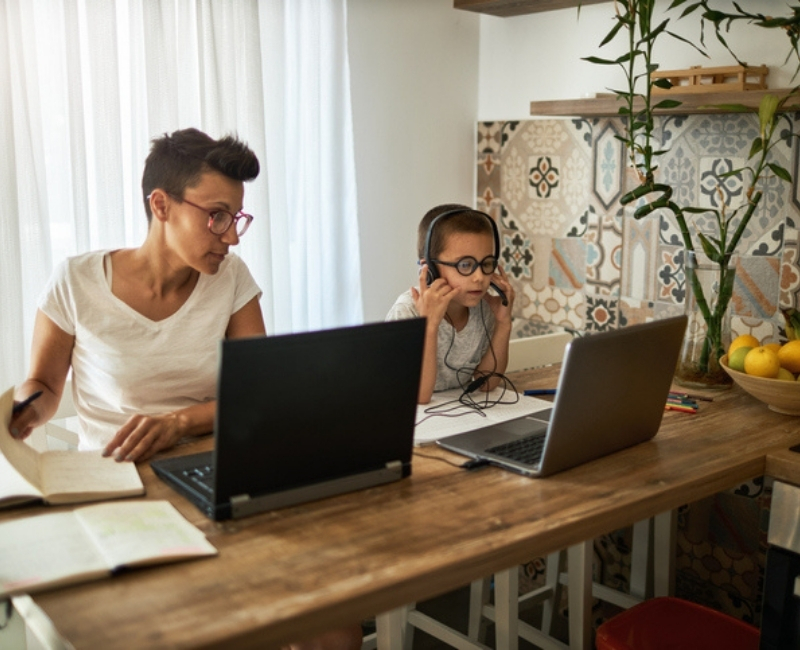
Dr. Rich has some sage advice to offer parents who are fretful about their kids' use of screens and their ability to learn online.
"I think parents shouldn't feel guilty. Parents spend a lot of energy worrying they screwed their kids up somehow. Kids are amazingly resilient. The most important thing is to keep aware of what's going on with them and for them.
"Keep communication open so that as things come up, the kid feels safe and nurtured by interacting with their parent around that issue rather than thinking they're doing something wrong or are going to get punished. Remember that we're all in this together. As miserable as you feel as a parent, your kid is also miserable, but misery loves company. It's good to be together and to talk about it and process it.
"This is going to be a generation-defining experience in some ways. How we handle it is really critical, both for what we model for the kids and how we help the kids get through it as best they can. I think we need to pay attention to our kids' state of mind, that they're not depressed and anxious as much as we can, and work that through as we progress through this. We still don't know how long it's going to last or what things are going to look like when things change or when those changes will happen. Enjoy your kids. Remember to laugh from time to time. Remember to be together with them. Don't let them make you their enemy, and don't let them become yours. We can figure out how to live together in the same space."
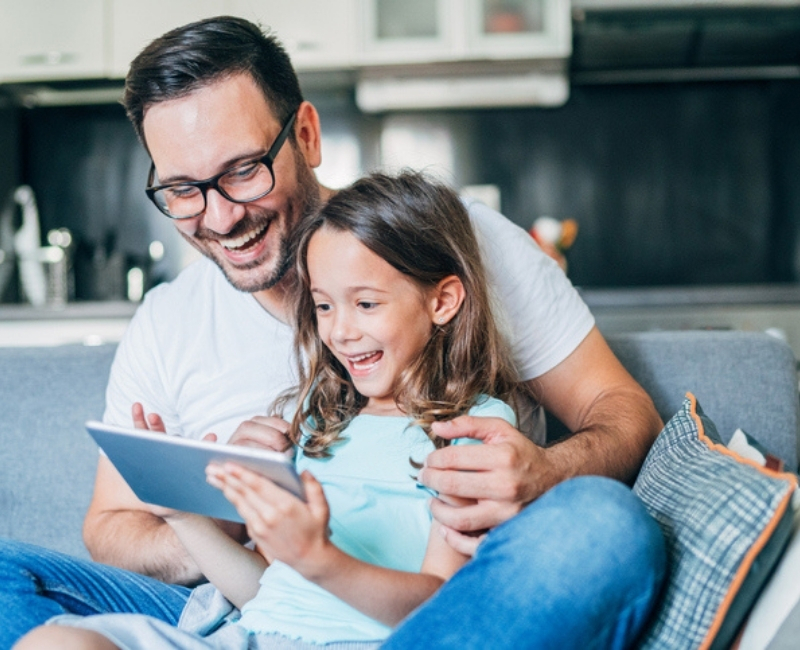
"The one thing to think about screen time is that it's not inherently toxic, but we should think about it in terms of what we're doing on screens and the context in which we're doing it. One thing might be appropriate and good, like Minecraft, but it's not good during a class. Think about the context as well as the content.
"Also, think about what they're not doing, because they're in front of a screen, they're not getting outdoors and taking a walk or shooting hoops or riding a bike. What we owe our kids ultimately is a rich and diverse menu of experience. Screens can be a part of that, but not when they're impairing other activities of life and getting in the way of other things."
To help parents navigate this time and all their media concerns, Dr. Rich has resources for families. The CMCH has a page called Family Digital Wellness and Return to School 2020 to cover all of your questions and concerns. If you're stumped on something they haven't covered, you can "Ask the Mediatrician" himself through the online submissions page.

